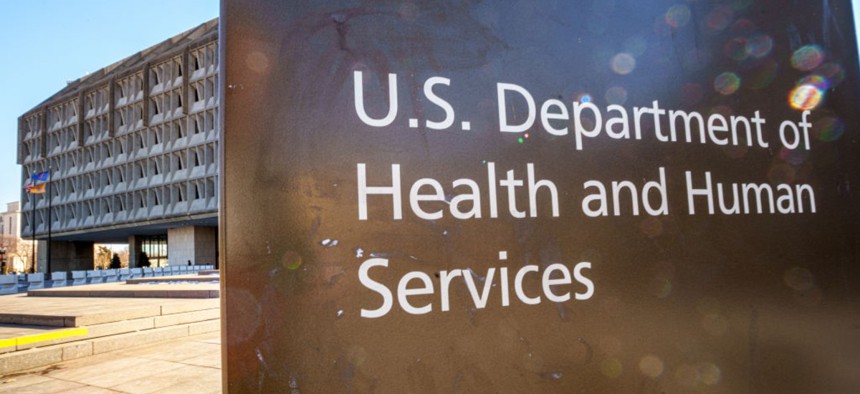
The layoffs are part of the Department of Government Efficiency’s plan to reorganize HHS. Gettyimages.com/ J. David Ake / Contributor
DOGE guts HHS small business office
Only the Office of Small and Disadvantaged Business Utilization executive director remains to advocate for small businesses at the Department of Health and Human Services, which obligated $39 billion in contracts last year.
Thousands of workers have been laid off at the Department of Health and Human Services and now we can include in that the dismantling of HHS' Office of Small and Disadvantaged Business Utilization.
The entire OSDBU staff has been forced out by the agency, except for executive director Shannon Jackson.
An HHS spokesman person declined to comment on layoffs specific to the OSDBU staff, but the department has announced 10,000 layoffs amidst a restructuring of the department.
HHS is reducing its headcount from 82,000 to 62,000 employees, a figure that is combined with other personnel actions such as early retirements and so-called “fork in the road” departures.
The layoffs are part of the Department of Government Efficiency’s plan to reorganize HHS by consolidating 28 divisions down to 15, and reducing regional offices from 10 to five.
Several sources have confirmed the demise of the OSDBU staff, including former staffers, but also are hopeful that some people will be reinstated.
Small business goals and requirements are often set by legislation and would require congressional action to dismantle, but HHS can continue to claim they are meeting those requirements because Jackson is still in place.
Washington Technology has been told HHS has not eliminated the OSDBU office, but merely the staff. HHS can continue to claim as it is “complying with all statutory requirements.”
Guy Timberlake, CEO and co-founder of the American Small Business Coalition, said there is no way one person can meet every requirement laid out in the Small Business Act given the size of HHS.
The Small Business Act lays out the OSDBU’s responsibilities that include with the chief procurement officer on acquisition strategies, market research and justifications. The OSDBU executive director also appoints small business technical advisors to work with procurement center representatives.
The OSDBU makes recommendations on whether a particular contract should be a small business contract or not. The act requires agencies to document why contracts cannot be reserved for small businesses even though the OSDBU recommends they be aside.
The OSDBU also weighs when an agency wants to bundle contracts, or convert a contract from small business to full-and-open.
As Timberlake described it to Washington Technology, the OSDBU has a seat at the table when requirements are being discussed. He said that if one person is the entire OSDBU staff at HHS, the ability to advocate for small businesses and explain the small business strengths and capabilities will be lost.
The OSDBU layoffs impacted at least 25 people at HHS headquarters and different components such as the Center for Medicare and Medicaid Services, the Food and Drug Administration, the National Institutes of Health, and the Center for Disease Control and Prevention.
“That’s not something you can’t replace with artificial intelligence,” Timberlake said. “At the requirement level, advocacy is part of the job.”
HHS spent $39.1 billion in contracts during the government's 2024 fiscal year with 22.8% going to small businesses. With no one at the table, that number looks poised to drop.
“It’s a lost opportunity,” Timberlake said. “No one is minding the store now.”
How are these changes affecting you? Share your experience with us:
Eric Katz: ekatz@govexec.com, Signal: erickatz.28
Sean Michael Newhouse: snewhouse@govexec.com, Signal: seanthenewsboy.45
Erich Wagner: ewagner@govexec.com; Signal: ewagner.47
NEXT STORY: CISA to make comprehensive staff cuts in coming days, people familiar say







